| ROMANIA: OVER 300 SEARCHES IN €1.32 MILLION EU SUBSIDY FRAUD INVOLVING BEEKEEPING
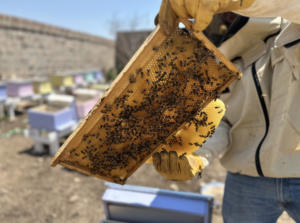
The European Public Prosecutor’s Office (EPPO) in Timișoara (Romania) conducted 307 searches in 15 counties of Romania over the last two months, in an investigation into a suspected €1.32 million EU subsidy fraud involving beekeeping projects.
The investigation concerns 388 single payment requests submitted to the Romanian Agency for Payments and Intervention in Agriculture (APIA) during the 2023 and 2024 agricultural campaigns, for financial support in the beekeeping sector. These requests were co-financed by the European Agricultural Guarantee Fund (EAGF) and the national budget, each covering 50% of the amount granted.
It is suspected that the individuals behind these applications – all represented by the same person before the agency – submitted false or misleading documentation to obtain the subsidies. The beneficiaries allegedly did not own the bee colonies, beekeeping equipment or treatment medicines listed in their supporting documents and may have unlawfully obtained around €1.32 million in public funds.
The investigation and searches counted on the support of the EPPO Support Structure in Romania – Timișoara Territorial Office (Structura de sprijin a procurorilor europeni delegați în România – Biroul Teritorial Timișoara), the General Inspectorate of the Romanian Police-Transport Police Directorate-Timișoara, Braşov, Cluj, Galați, Craiova, Bucharest Regional Services and their subordinate units (Inspectoratul General al Poliției Române-Direcția Poliției Transporturi-Serviciile Regionale Timişoara, Braşov, Cluj, Galaţi, Craiova, Bucureşti), the Timiș County Police Inspectorate – Economic Crime Investigation Service (Inspectoratul de Poliție Județean Timiș – Serviciul de investigare a criminalității economice) and the Alba County Police Inspectorate (Inspectoratul de Poliție Județean Alba.
All persons are presumed innocent until proven guilty in the competent Romanian courts of law.
The EPPO is the independent public prosecution office of the European Union. It is responsible for investigating, prosecuting and bringing to judgment crimes against the financial interests of the EU.
| FIRST BUILDING BLOCKS OF BELGIAN PRINCESS ELISABETH ENERGY ISLAND SUCCESSFULLY PLACED IN THE NORTH SEA

Construction has begun in the Belgian North Sea on the Princess Elisabeth Island, an artificial energy island located 45 km off the coast. After a successful sea transport operation, the first two of a total of 23 caissons have been submerged at their final location. Caissons are concrete building blocks that form the outline of the future island. In a later phase, the interior will be filled with sand to build high-voltage infrastructure that will connect new offshore wind farms. The work is being carried out on behalf of grid operator Elia Transmission Belgium (Elia) by TM Edison, a consortium of Belgian marine construction companies DEME and Jan De Nul.
Complex maritime operation
The transport and installation of the caissons at sea is a technically complex operation that began on Easter Monday, 21 April 2025. Each caisson weighs approximately 22,000 tons and measures 58 meters in length, 28 meters in width, and between 23 and 32 meters in height, depending on the presence of a storm wall. For the transport from the port of Vlissingen—where they are built—four powerful tugboats are used to tow each caisson via the Western Scheldt and the North Sea to the island site; covering a distance of approximately 53 nautical miles or 98 kilometres. The complete installation cycle—from departure from the port to placement and fixation at the final destination—takes about 24 hours.
Once at its destination, the caisson is connected to pre-installed anchors and positioned above the foundation zone (see Figure 2). Advanced surveying techniques, continuous monitoring, and precise tidal measurements ensure that the concrete structure is lowered with great precision. The caisson is then filled with water, allowing it to descend to the seabed in a controlled and stable manner.
This is followed by the next construction phase: placing rock armour around the submerged caisson to protect it against potential summer storms, filling the caisson with sand, and preparing for the installation of the next caisson. Finally, the opening between the caissons is sealed to prevent sand from escaping later when the interior surface is filled.
Close monitoring of risks and weather conditions
The operation involves about ten vessels, including four tugboats, a multicat vessel, and dredging, transport, and installation ships. In total, around 150 people are participating. The operation requires extremely precise planning and is carried out in close collaboration with the Rescue and Coordination Centre (MRCC) in Ostend, the Joint Nautical Authority and North Sea Port. Emergency procedures, maritime evacuation plans, and strict communication protocols have been developed according to the highest safety standards. All involved have been trained accordingly.
The transport and placement of the caissons at sea are also highly dependent on tidal movements and weather conditions. The operation only proceeds if waves do not exceed 1.5 metres and wind speeds remain below 5 Beaufort. Two independent weather forecasting services and multiple buoy measurements provide real-time monitoring.
Belgium’s electricity hub at sea
The Princess Elisabeth Island will be a crucial link in connecting future offshore wind farms in the Belgian North Sea. It is both technologically and economically the most efficient way to significantly expand Belgium’s offshore electricity production and reduce dependency on fossil fuels.
| MONACO TO HOST THE UIM E1 WORLD CHAMPIONSHIP, THE ALL-ELECTRIC RACEBOAT SERIES
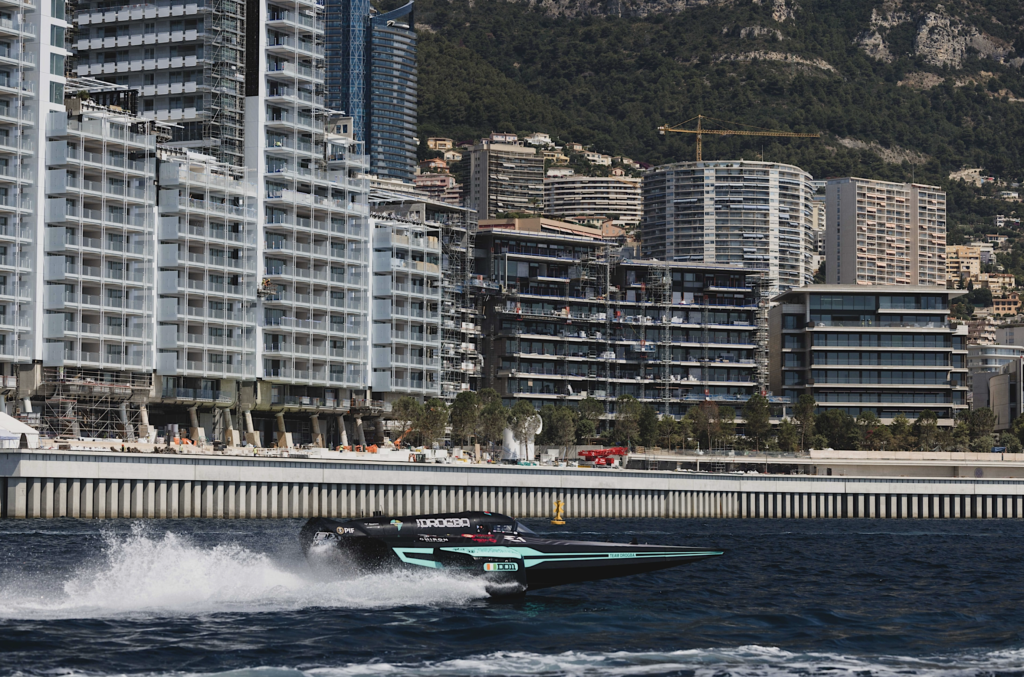
The UIM E1 World Championship, the inaugural all-electric raceboat series, is scheduled to return to Monaco on July 18–19, 2025. This signifies the fifth location in the seven-race international schedule, succeeding events in Doha, Dubrovnik, and Lago Maggiore, and anticipating races in Lagos and Miami.
Nine international teams, each consisting of one male and one female pilot, will participate in the Monaco leg. These teams are supported by international superstars such Rafael Nadal, Didier Drogba, Will Smith, Steve Aoki, and Tom Brady. Team Brady, co-owned by Tom Brady and Didier Drogba, secured victory in Monaco during the inaugural 2024 season.
French supporters will be closely observing Tom Chiappe of Team Rafa. Chiappe, a native of Rouen, exhibited a formidable qualifying performance in Monaco last year and is anticipated to be a leading contender this season.
Monaco’s Dedication to Sustainable Innovation
The Yacht Club de Monaco is integral to the E1 Series, providing the private Ocean Club for VIP guests and serving as the headquarters for the E1 Pilot Academy. This academy is committed to educating the forthcoming generation of electric raceboat pilots. Graduates such as Sara Misir (Team Blue Rising) and Micah Wilkinson (Team Drogba) have secured podium placements this season.
The Monaco event highlights high-speed electric boat racing and underlines the Principality’s prominence in sustainable marine innovation and electric mobility. The E1 World Championship, via its integration of advanced technology and celebrity participation, is consistently reshaping the future of motorsport.
| CREDIT SUISSE SERVICES AG PLEADS GUILTY TO TAX CRIMES, AGREES TO PAY MORE THAN $510M

Credit Suisse Services AG pleaded guilty and was sentenced to conspiring to hide more than $4 billion from the IRS in at least 475 offshore accounts. The guilty plea by the Swiss corporation is the result of a years-long investigation by U.S. law enforcement to uncover financial fraud and abuse.
In addition to the plea, Credit Suisse Services AG entered into a non-prosecution agreement (NPA) with the U.S. Justice Department’s Tax Division and U.S. Attorney’s Office for the Eastern District of Virginia in connection with U.S. Accounts booked at Credit Suisse AG Singapore. Under the NPA, Credit Suisse Services AG agreed to cooperate with the Justice Department in ongoing investigations and to pay significant monetary penalties for maintaining accounts in Singapore on behalf of U.S. taxpayers who were using offshore accounts to evade U.S. taxes and reporting requirements.
According to the Plea Agreement, NPA, and documents filed in court: from Jan. 1, 2010, and continuing until about July 2021, Credit Suisse AG, which had ultra-high-net-worth and high-net-worth individual clients around the globe, conspired with employees, U.S. customers, and others to willfully aid U.S. customers in concealing their ownership and control of assets and funds held at the bank. This enabled those U.S. customers to evade their U.S. tax obligations in several ways, including by opening and maintaining undeclared offshore accounts for U.S. taxpayers at Credit Suisse AG, and providing a variety of offshore private banking services that assisted U.S. taxpayers in the concealment of their assets and income from the IRS and allowed for their continued failure to file FBARs. Among other fraudulent acts, bankers at Credit Suisse falsified records, processed fictitious donation paperwork, and serviced more than $1 billion in accounts without documentation of tax compliance. In doing so, Credit Suisse AG committed new crimes and breached its May 2014 plea agreement with the United States.
Between 2014 and June 2023, Credit Suisse AG Singapore held undeclared accounts for U.S. persons, which Credit Suisse AG Singapore knew or should have known were U.S., with total assets valued at over $2 billion. Credit Suisse AG Singapore failed to adequately identify the true beneficial owners of accounts and failed to conduct adequate inquiry about U.S. indicia in the accounts. In 2023, during the post-merger of UBS AG Singapore and Credit Suisse AG Singapore, UBS became aware of accounts held at Credit Suisse AG Singapore that appeared to be undeclared U.S. accounts. UBS froze some of the accounts, voluntarily disclosed information about those identified accounts to the Justice Department and cooperated by undertaking an investigation into the identified accounts.
Under the resolutions, Credit Suisse Services AG and, by extension, UBS AG, is required to cooperate fully with ongoing investigations and affirmatively disclose any information it may later uncover regarding U.S.-related accounts. The agreements provide no protections for any individuals. Pursuant to the guilty plea and the NPA, Credit Suisse Services AG will pay a total of $510,608,909 in penalties, restitution, forfeiture, and fines.
Credit Suisse collapsed due to risk management failures, scandals, and massive losses, leading to its forced acquisition by UBS in 2023
| 26 DASSAULT RAFALE MARINE FOR THE INDIAN NAVY

The Inter-Governmental Agreement between India and France has been signed today allowing the signature, in the presence of the Chairman and CEO of Dassault Aviation, Éric Trappier, of the contract for India’s acquisition of 26 Rafale Marine to equip the Indian Navy.
This contract follows the announcement in July 2023 of the selection of the Rafale Marine, for which the Indian Navy will be the first user outside France, after an international consultation. It confirms the Indian authorities’ satisfaction with the aircraft’s capabilities and their desire to broaden the spectrum of its operational use.
This new acquisition testifies to the importance of the strategic relationship between India and France and the recognition of the Rafale as an essential vector of national sovereignty.
It honors Dassault Aviation’s commitment to meeting the operational needs of the Indian Forces since the induction of the Toofany seven decades ago, and its determination, through its significant contribution to the ‘Make in India’ policy and the ‘Skill India’ initiative, to make its presence in India a success in the service of Indian interests.
The Rafale Marine will provide the Indian Armed Forces with state-of-the-art capabilities and the Indian Navy will benefit from the experience of the French Navy, which already operates this aircraft. Along with the 36 Rafale already in service with the Indian Air Force, the Rafale Marine will play an active role in guaranteeing national sovereignty and consolidating India’s role as a major international player.
“On behalf of Dassault Aviation and its partners, I would like to thank the Indian authorities, with whom we have been working for more than 70 years, for their confidence in us and reaffirm our unwavering determination to stand by their side to contribute to India’s expression of its sovereign power, its strategic challenges and its ambitious vision of the future,” said Éric Trappier.
ABOUT DASSAULT AVIATION
With over 10,000 military and civil aircraft delivered in more than 90 countries over the last century, Dassault Aviation has built up expertise recognized worldwide in the design, production, sale and support of all types of aircraft, ranging from the Rafale fighter, to the high-end Falcon family of business jets, military drones and space systems. In 2024, sales amounted to € 6.2 billion. Dassault Aviation has 14,600 employees.
| EU INVESTS €7.3 BILLION FROM HORIZON EUROPE TO ENHANCE ITS COMPETITIVENESS AND TALENT GROWTH
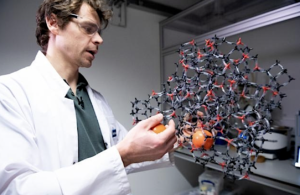
The European Commission is investing over €7.3 billion through its newly adopted Horizon Europe work programme for 2025 to strengthen Europe’s research and innovation engine and global edge. This will drive cutting-edge science, accelerate the EU’s green and digital transitions, and enhance Europe’s competitiveness.
The programme will help attract and retain top researchers in Europe and offer targeted support to those affected by war and displacement. As part of these efforts, the Commission is updating the Marie Skłodowska-Curie Actions (MSCA) 2023-25 work programme part to offer more support for Ukrainian scientists and to launch a new MSCA ‘Choose Europe for Science’ pilot, which will offer more support and opportunities for early-career researchers, including competitive allowances and longer contracts.
This pilot is part of a €500 million package for 2025–2027 and the wider ‘Choose Europe’ initiative to make Europe a magnet for researchers, presented by President von der Leyen last week. The initiative focuses on three goals: keeping science free and open, investing in talent, and accelerating innovation in Europe.
Through the European Research Council (ERC), researchers relocating to Europe already receive a top-up beyond their grant, which has recently been doubled. Additionally, a new seven-year ‘super grants’ under the ERC will offer long-term support for top talent.
| PUBLIC HEALTH ADVICE FOR TRAVELLERS ATTENDING THE JUBILEE 2025 IN ITALY
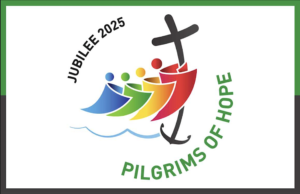
The Jubilee 2025, also known as a Holy Year, will take place in Rome and the Vatican City, Italy, spanning 2025 and concluding on 6 January 2026.
As one of the Catholic Church’s major international events, it is expected to attract more than 30 million visitors. Traditionally held every 25 years, the Jubilee involves pilgrims travelling to Rome and the Vatican City to visit designated sites and participate in organized events and services throughout the Jubilee year.
WHO/Europe, the European Centre for Disease Prevention and Control (ECDC) and the Istituto Superiore di Sanità, Italy have jointly developed public health advice for the Jubilee 2025 to protect the safety and well-being of people attending the event.
“There is no current health risk in Italy, but preparation is key, as for any travel abroad when one can expect to be in crowds or experience extreme heat. This is important especially for certain vulnerable groups, like people with underlying conditions,” says Rocco Bellantone, president of the Istituto Superiore di Sanità.
If you are planning to attend, make sure to follow these simple health tips to protect your health and well-being.
“Large-scale gatherings like the Jubilee 2025 are unique opportunities for communities to come together, but they also present specific public health challenges. Together with WHO and the Istituto Superiore di Sanità, ECDC aims to provide evidence-based advice to help protect the health of pilgrims and visitors and to support them in making informed choices before, during, and after their journeys,” said Piotr Kramarz, ECDC Chief Scientist.
The public health advice covers various topics, including guidance on heatwaves and sun exposure, vaccination, food and water safety, vector-borne diseases (such as those transmitted by mosquitoes and ticks), alcohol and tobacco use, and sexually transmitted diseases.
“This year’s Jubilee in Rome and Vatican City is particularly significant. Not only is it the first since the COVID-19 pandemic, but it will take place following the sad news of the passing of His Holiness Pope Francis,” said Ihor Perehinets, WHO’s Regional Emergency Director for Europe. “With such large numbers of people expected, following public health advice can help pilgrims and other visitors to have a safe and fulfilling experience and enjoy this very special opportunity to visit Rome and other holy sites.”
| MONACO’S CATHOLIC CHURCH STRONGLY OPPOSED TO THE NATIONAL COUNCIL PROPOSED LEGISLATION ON ABORTION
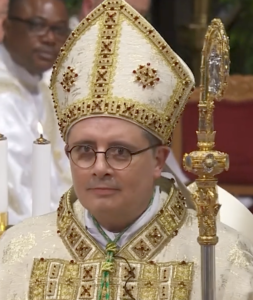
The National Council of Monaco has voted on Bill No. 267, a significant legislative proposal that is intended to regulate voluntary termination of pregnancy (VTP) in the Principality. The purpose of this measure was to allow abortions up to 12 weeks of pregnancy without requiring justification and to extend the period to 16 weeks in cases of rape.. The procedure was also guaranteed to be covered by social security, thereby fostering equitable access for all women, and a mandatory three-day reflection period was also included.
Monaco’s approach to reproductive rights underwent a significant transformation with the introduction of this law. Medical personnel in Monaco were subjected to severe penalties for performing abortions in the absence of exceptional circumstances, such as dire medical necessity or cases of rape, despite the fact that abortion was decriminalised for women in 2019. Monegasque women were frequently compelled to seek abortions abroad, often under stressful and imperative circumstances, as a result of this legal framework.
Monaco’s Catholic Church responded with robust opposition to the proposed legislation. Archbishop Dominique-Marie David, who represents the Archdiocese of Monaco, conveyed profound apprehensions about the bill’s implications. In a statement, he characterised the abortion issue as “grave,” stating that it has a significant impact on not only women but also families and the most vulnerable members of society, including expectant children. He advised against allowing the debate to become a source of public pressure or division and emphasised the significance of preserving Monaco’s identity and maintaining a balanced approach to such sensitive issues.
The Archdiocese expressed her willingness to engage with institutional counterparts to discuss the challenges posed by the proposed legislation, while also respecting the legislative process. She also called for thoughtful and respectful dialogue. This posture is indicative of the conflict between the enduring religious traditions of Monaco and the changing societal values.
Says Archbishop Dominique-Marie David : “While not all of the Principality’s DNA is rooted in Catholicism, without Catholicism, the Principality is no longer in possession of its full DNA.”
The current inquiry is, of course, whether the government will suspend the legislative process or convert this text, whether or not it has been amended, into a draft bill within the six-month deadline.
| THE COMMISSION’S DECISION DENYING A JOURNALIST FROM THE NEW YORK TIMES ACCESS TO THE TEXT CONVERSATIONS EXCHANGED BETWEEN PRESIDENT VON DER LEYEN AND THE CEO OF PFIZER NULLIFIED BY THE GENERAL COURT OF THE EUROPEAN UNION

Through an application pursuant to the Access to Documents Regulation, Matina Stevi, a journalist for The New York Times, requested the European Commission to grant access to any text conversations sent between President Ursula von der Leyen and Albert Bourla, the CEO of Pfizer, from 1 January 2021 to 11 May 2022. The Commission denied the application on the basis that it did not possess the relevant papers. Ms. Stevi and The New York Times petitioned the General Court of the European Union to invalidate the Commission’s judgement.
The General Court affirmed the action and nullified the Commission’s decision.
According to The Court ruling the objective of the Access to Documents Regulation is to maximise the right of public access to documents maintained by the institutions. Consequently, in theory, all institutional documentation need to be available to the public. When an institution asserts that a document is nonexistent in relation to an access application, the absence of that document is presumed, in line with the presumption of truthfulness associated with that assertion. This presumption may be challenged based on pertinent and coherent evidence provided by the petitioner.
The Court observes that the Commission’s responses about the required text messages during the proceedings rely on either assumptions or inconsistent and vague facts. In contrast, Ms Stevi and The New York Times have presented pertinent and coherent evidence detailing the existence of exchanges, particularly through text messages, between the President of the Commission and the CEO of Pfizer regarding the Commission’s procurement of vaccines from the company during the COVID-19 pandemic. They have successfully refuted the presumption of non-existence and non-possession of the sought documents.
In this context, says the Court, the Commission cannot simply assert that it lacks the sought papers; it must furnish plausible justifications that allow the public and the Court to comprehend the reasons for the unavailability of those materials. The Commission has not provided a detailed explanation of the types of searches conducted to locate those documents or the identities of the locations where those searches occurred. Consequently, it has failed to provide a credible rationale for the absence of the required papers. Furthermore, the Commission has not adequately elucidated whether the required text messages were deleted, and if so, whether the deletion occurred intentionally or automatically, or whether the President’s mobile phone had been substituted in the interim.
| OLAF LEADS MAJOR CRACKDOWN ON COUNTERFEIT FASHION SMUGGLING ACROSS EUROPE
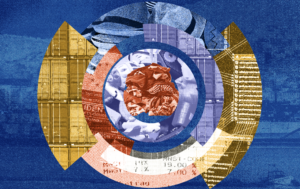
The European Anti-Fraud Office (OLAF) has played a key role in a large-scale operation targeting the smuggling of high-quality counterfeit designer clothing, footwear and accessories into the European Union. These goods, produced and shipped from outside the EU, pose serious risks to not only the health and safety of consumers, but also to the legitimate fashion industry and the European economy.
The operation, which began with OLAF opening enquiries in 2024, has already resulted in the seizure of over 1.8 million counterfeit items, with an estimated market value exceeding €180 million. These seizures took place in Austria, Belgium, Germany, Italy, and in non-EU countries, and involved close coordination with customs authorities in both EU Member States and third countries.
The counterfeit items—featuring logos of renowned fashion brands were so meticulously produced that even brand-appointed experts acknowledged their deceptive quality. The smugglers attempted to conceal the goods within containers behind layers of legitimately declared textile products.
In one of the most significant actions, nearly one million fake garments and accessories were intercepted at the Port of Trieste by the Italian Customs and Monopolies Agency (ADM) and Guardia di Finanza, with intelligence and operational support from OLAF. The items originated from Ambarli Port in Türkiye and were bound for the Netherlands. The full press release (in Italian) can be found here.
Director-General of OLAF Ville Itälä said: “This is a textbook example of what OLAF does best: coordinating across borders, analysing complex intelligence, and helping national authorities act decisively. Counterfeit goods hurt the EU’s economy, rob legitimate businesses of revenue, endanger jobs, and put consumer health at risk. Fashion counterfeiting, in particular, is often linked to unsafe production practices and unethical labour conditions. This kind of illegal trade must be stopped at the source.”
The wider impact of counterfeit fashion on the EU economy is profound. The industry loses billions in legitimate revenue each year, which also means fewer jobs, reduced innovation, and less tax income for public services. Moreover, counterfeit clothing and accessories may often contain dangerous substances such as heavy metals and toxic dyes, posing direct threats to consumer health.
OLAF enquiries are ongoing. Further investigations are being conducted into the supply chains and networks responsible for this illicit trade, with the goal of dismantling the operations and ensuring that counterfeit products do not reach European consumers.
| INTERNATIONAL COALITION AGREES ON THE ESTABLISHMENT OF THE SPECIAL TRIBUNAL FOR THE CRIME OF AGGRESSION AGAINST UKRAINE

On Europe Day, the Commission, represented by Commissioner Michael McGrath, High Representative Kaja Kallas, the Council of Europe, the Prime Minister of Ukraine, Denys Shmyhal, and the representatives of an international coalition of states gathered in Lviv to formally endorse the establishment of a Special Tribunal for the Crime of Aggression against Ukraine.
All participants, as per the Lviv adopted Statement, welcomed the finalisation of the preparatory work required to establish a Special Tribunal within the Council of Europe. They committed to establishing the Special Tribunal, to the swift commencement of its operations, and to supporting it in its work.
Ursula von der Leyen, President of the European Commission, said: “As we celebrate Europe Day, we move closer to justice for the people of Ukraine. We stand fully behind the Special Tribunal, to hold to account those responsible for the heinous crime of aggression against Ukraine. The people of Ukraine deserve justice, and we will do everything in our power to make sure they get it.”
The Tribunal will have the power to investigate, prosecute and try Russian political and military leaders, who bear the greatest responsibility for the crime of aggression against Ukraine.
The establishment of the Tribunal will be based on an agreement between Ukraine and the Council of Europe.
It is now for the Council of Europe to set up the necessary framework to establish the Special Tribunal, which will derive its jurisdiction from Ukraine.
Kaja Kallas, High Representative for Foreign Affairs and Security Policy/Vice-President of the European Commission said :
“Today we take a decisive step towards justice for Ukraine. The Special Tribunal will ensure that those most responsible for the aggression against Ukraine are held accountable. Every inch of Russia’s war has been documented. It leaves no room for doubt in Russia’s manifest violation of the UN Charter. It leaves no room for impunity. Russia’s aggression will not go unpunished”.
Once the Special Tribunal is established, Ukrainian national authorities will be able to refer ongoing domestic investigations and prosecutions related to the crime of aggression to the Prosecutor of the Special Tribunal. The evidence gathered in the context of the work carried out within the International Centre for the Prosecution of the Crime of Aggression (ICPA), which is hosted within Eurojust will also be transmitted to the Prosecutor of the Special Tribunal as appropriate.

